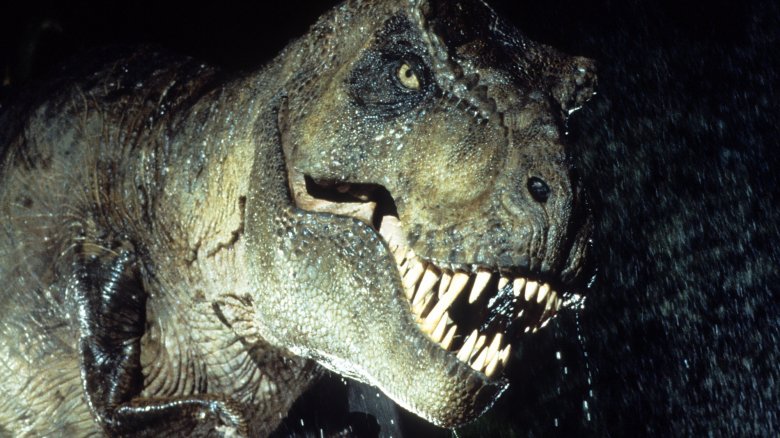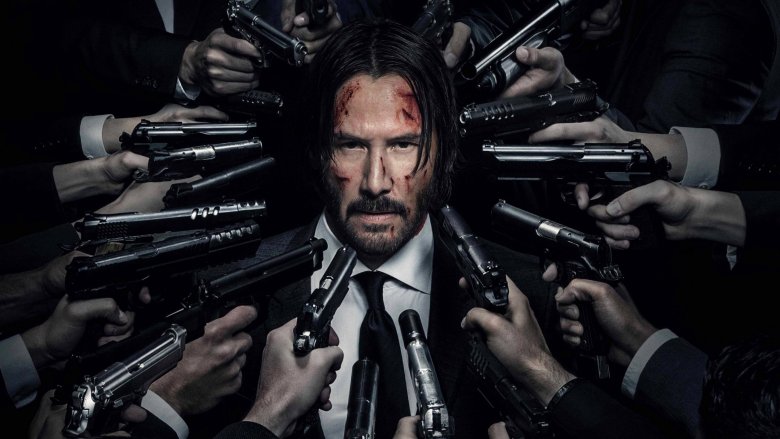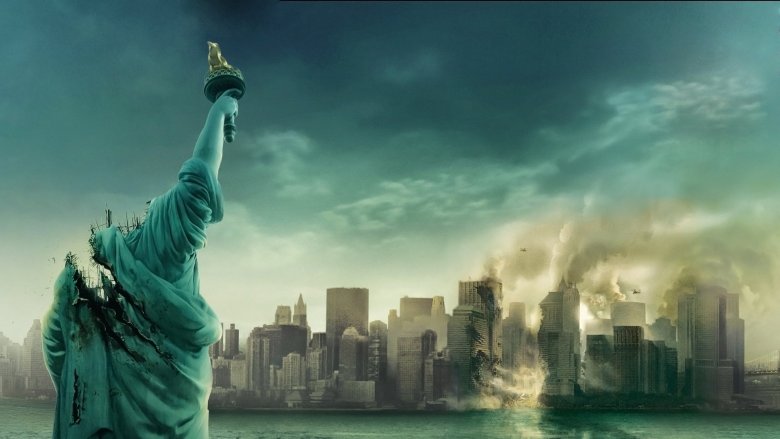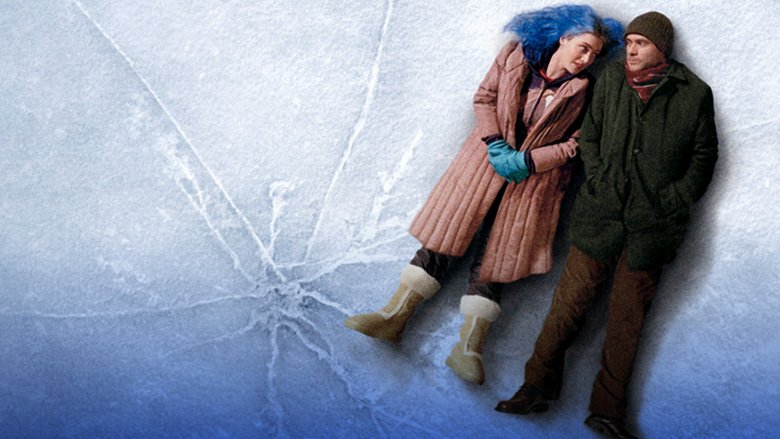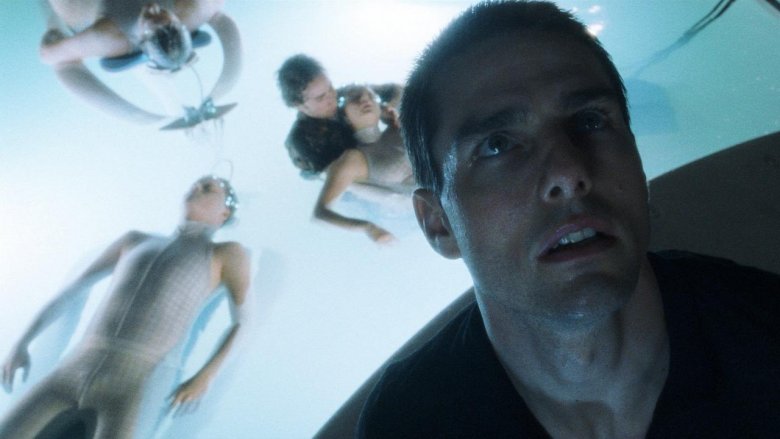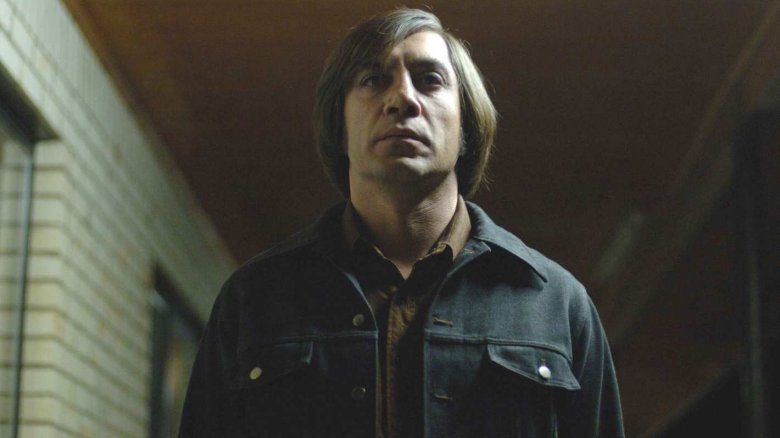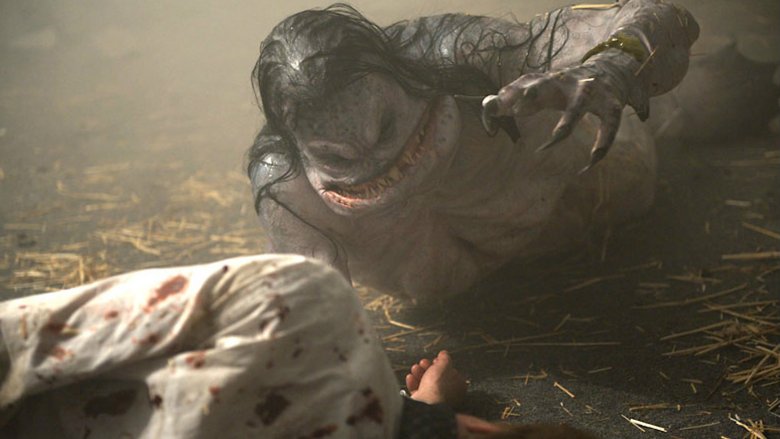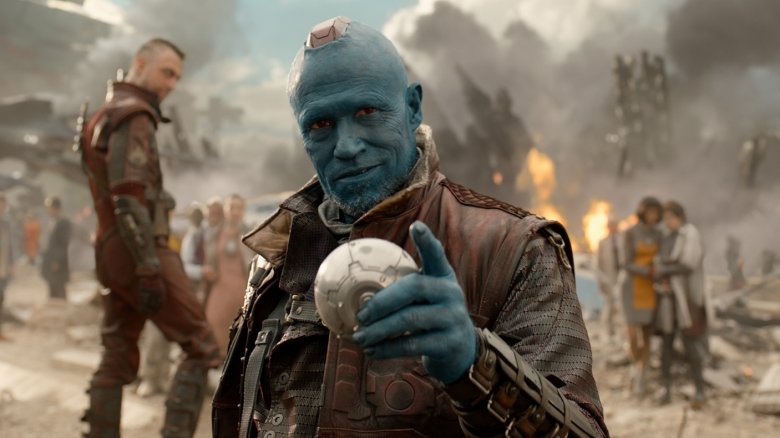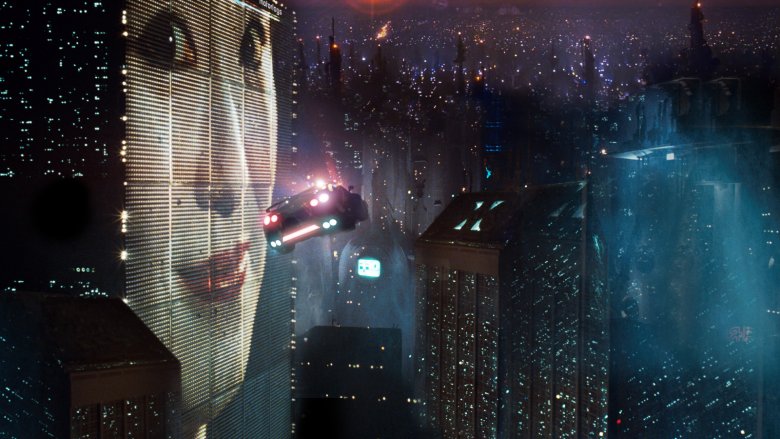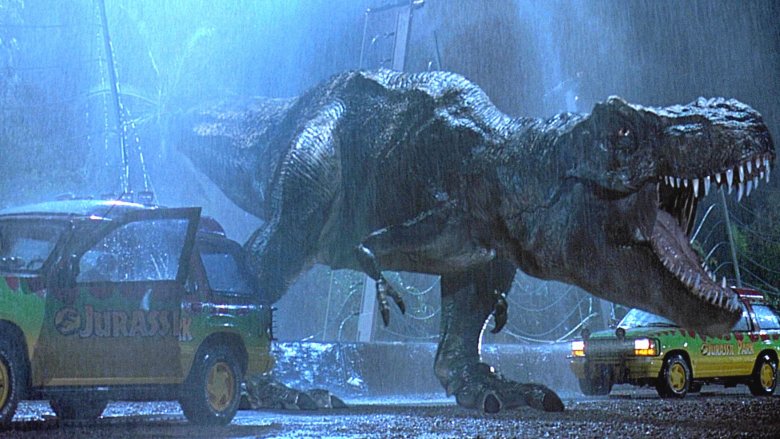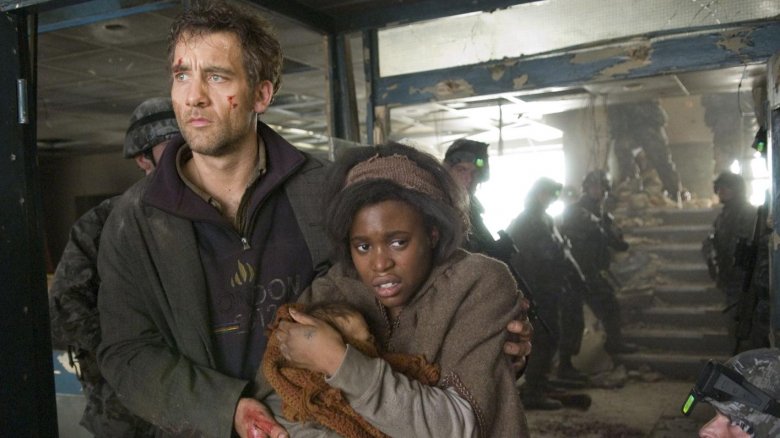Movies That Need A Prequel
When you love something, it's natural to want more. Some films are so good, a couple of hours is nowhere near enough. Perhaps the characters are so compelling, you want to see more of their lives after the credits roll. Perhaps the fictional universe is so endlessly creative, you want to discover new locations, new stories, and new inhabitants.
Most of the time, the desire to give fans more comes in the form of a sequel that picks up where things left off. Sometimes, though, there's another option—to take a trip back in time, extending the story by depicting its past. Though difficult to execute, prequels can work extremely well (The Godfather Part II, anyone?) and are still scarce in Hollywood. With that in mind, here are some great movies that are primed, prepped, and ready for a prequel. Warning: spoilers ahead.
John Wick
He once killed a man. With a pencil. The mythology of assassin John Wick (Keanu Reeves) is too good to leave in the audience's imagination, and bringing some of his earlier assignments to life would make for an explosive cinematic experience.
Admittedly, the franchise is still expanding, with John Wick: Chapter Three already on its way. But there's enough material to go around, especially in the formative years before Wick's retirement. As well as showing the suited hitman in his prime, a John Wick prequel could explore the birth of the Continental, showing us how it came to be such an influential, all-encompassing force.
In fact, Wick doesn't even need to be the center of the story. There's another character who could be the focus of a prequel: Winston (Ian McShane). Why not look at his youth, to see how the enigmatic owner of the Continental Hotel became a force within the world of assassins? It'd also allow for more creative room when constructing the strict rules and regulations of the elite underground operation.
Cloverfield
It's not an exaggeration to say the viral marketing campaign of Matt Reeves' 2008 destruction epic Cloverfield is one of the most inspired of all time. To complement the film, an interconnected online web of clues propelled the Cloverfield universe—which now includes 2016's 10 Cloverfield Lane and an upcoming third installment—into an interactive experience known as an Alternate Reality Game, or ARG.
But what about the non-ARG fans who haven't dipped a toe into the Atlantic Ocean, ground zero of the Cloverfield Monster? There's a wealth of sci-fi spectacle and thrills waiting to be captured on the big screen, with the added bonus that it would also explain the origin of the monster who seemingly appeared out of nowhere in the original.
According to the ARG, a morally bankrupt corporation called Tagruato are responsible for creating the monster. While producing their frozen drink Slusho!, the Japanese company mined for a highly addictive substance, known as Seabed's Nectar—the monster's favorite meal.
A Cloverfield prequel could be less all-out destruction and more of a whodunnit conspiracy flick. It could explore the death of Tagruato's marine biologist, Kazui Ichigawa, who was murdered by the corporation in a cold-blooded coverup after he discovered the monster. Producers could even keep the true nature of the film under wraps before its release, leaving subtle clues to give the game away in a satisfying "Eureka!" moment for fans.
Eternal Sunshine of the Spotless Mind
Michel Gondry's trippy look at the nature of love and memory is one of the most affecting films of the millennium. Starring Jim Carrey and Kate Winslet, it's a unique, visceral depiction of the highs and lows of human attachment. A television series is being planned, which is doubtless cause for dismay among fans, but there's one way the story can be expanded without taking anything away from the original.
Instead of a TV show, a movie prequel makes more sense. Ensuring screenwriter Charlie Kaufman writes the script is necessary, though. The film wouldn't need the involvement of Carrey or Winslet; viewers could see the origin of Lacuna, the enigmatic company responsible for the memory-erasing technology that drove the original story.
In Eternal Sunshine, the questionable procedure is commonplace and accepted. But why was it invented in the first place? Who else opted in, and what were their motives? How did the company get the legal go-ahead? Avoiding the original storyline but focusing on this intriguing aspect would make for a thrilling extension of the philosophical musings raised in the 2004 classic. Best of all, it only needs a subtle link to lightly etch the blank spaces.
Minority Report
Set in the year 2054, Minority Report focuses on Tom Cruise's Chief John Anderton. Mutated humans known as "Precogs" have the ability to see into the future, and they've had visions of Anderton committing murder in 36 hours' time—though one of the Precogs has a different vision.
A compelling mixture of detective work, action and sci-fi made Steven Spielberg's Philip K. Dick adaptation an acclaimed hit. Fox's TV spinoff of the same name, set in 2065, was canceled after one season and widely considered a disappointment, but perhaps it went wrong by following events after Anderton's quest to clear his name. Instead, why not venture back to the creation of the PreCrime program?
Dr. Iris Hineman discovered the Precogs' ability to see the future years before. Using the Woodhaven Clinic in Rhode Island as a base to study the fictional neurological condition known as "Renning's Syndrome," she worked with abandoned children. During tests, she noticed that the children scored top marks in guessing games, too frequently for coincidence. Her intention wasn't to create PreCrime; she stumbled across it by happenstance.
The events around Hineman's discovery would be perfect—think Stranger Things with a touch of Black Mirror, and you get an idea of the Minority Report prequel's theme. Hineman does appear briefly in the original, played by Lois Smith. Considering her age, her discovery would have occurred around three decades earlier, setting the prequel close to the present day.
No Country for Old Men
The Coen Brothers delivered a masterpiece in 2008. Anton Chigurh's (Javier Bardem) slow-paced pursuit of missing drug money leads him hot on the tail of Llewelyn Moss (Josh Brolin), starting a riveting cat-and-mouse story that rejuvenated the Western genre.
Roaming dusty 1980s Texas, Chigurh is an imposing, unforgettable character, his bizarre use of a bolt gun highlighting his unnerving eccentricity. No Country for Old Men is a classic that shouldn't be tampered with lightly, but this is a rare case where delving into the backstory of its antagonist could be a success. When Chigurh is introduced, he's escaping custody, but how did he get there? And what led him to becoming a contract killer?
Expanding Chigurh's tale would need to be done slowly, without giving everything away. It's certainly a difficult task to bring back such an esteemed character, and it'd need to happen with the blessing of the Coen brothers as well as No Country for Old Men novelist Cormac McCarthy—and with the involvement of a series lead every bit as eerily intimidating as Bardem. A tall order, but an intriguing one.
Cabin in the Woods
Drew Goddard's horror comedy Cabin in the Woods is fueled by a premise is as horrifying as it is imaginative, and part of the movie's impact stems from its crazy, off-the-charts climax.
The story's set within an elaborately manufactured, well, cabin in the woods, where every element is monitored and controlled by a technical team. Little do the unsuspecting inhabitants know they're part of a sadistic blood sacrifice to save humanity, as the game keeps the bloodthirsty "Ancient Ones" satiated and sleeping.
The ending of Cabin in the Woods is as finite as it can get. Which is why a prequel is a better option. There are unanswered questions aplenty—how did the Director negotiate with the Ancient Ones? How were the games set up in the first place? A prequel could explore all of these avenues with the same level of jump scares and dark comedy. Such is the fascinating layout of the game itself, it'd also make for engaging viewing to explore other incarnations of the failed games, leading up to humanity's extinction.
Goddard himself has confirmed that the studio is interested in a follow-up, which isn't surprising; it earned more than $60 million at the box office, on a budget of $30 million, back in 2012. The thirst for horror has also never been stronger or more lucrative, highlighted by recent hits such as It, Get Out, and Split.
Guardians of the Galaxy
Aside from another killer soundtrack and the perfect casting of Kurt Russell as Ego the Living Planet, one of the best things about Guardians of the Galaxy 2 was the way it shed light on Yondu's (Michael Rooker) relationship with Peter Quill, climaxing in one of the most poignant scenes in the superhero genre. But does death have to be the end for Yondu? No.
A Guardians of the Galaxy prequel could fill in the blanks between Meredith Quill's death in 1988 and Star-Lord's hip-swinging introduction in 2014. Such a spinoff would, of course, have to include Michael Rooker as the fin-headed Centaurian. It would give the opportunity for a younger actor to play a teenage or adolescent Quill, leaving Chris Pratt free to play the character in the main saga.
How did Yondu balance life as a Ravager while raising Quill? How did he protect him from the wealth of threats in the vibrant, criminal-filled cosmos? The beauty of elaborating on this period of Star-Lord's life is that it'll only enhance our understanding of the MCU's music-loving wisecracker.
Blade Runner
Perhaps it's too soon to consider following Denis Villenueve's long-awaited Blade Runner sequel, Blade Runner 2049, but why not strike while the iron's hot? This franchise's dystopian, replicant-riddled universe is one of the most compelling in fiction, and it'd be a shame to leave things where they are.
In the run-up to 2049's release, the three decades between the movies were fleshed out with three anime shorts—2036: Nexus Dawn, 2048: Nowhere to Run and Blade Runner Black Out 2022. As well as an ingenious marketing tool, they highlight the unlimited storytelling potential of the clash between humans and androids. Why not produce a low-budget, gritty prequel? A feature-length anime isn't out of the question, either.
In particular, it'd be interesting to see the invention of replicants, long before Niander Wallace (Jared Leto) attempted to revive the Nexus model. By the time events pick up in Ridley Scott's Blade Runner, the androids are already so advanced that they can pass the Voight-Kampff machine empathy test, as shown by the introduction of "more human than human" Rachael (Sean Young).
The events leading up to the monopoly of the Tyrell Corporation would be fascinating to witness. Picture a young Eldon Tyrell, meditating on the potential repercussions of creating replicants. What are the moral boundaries when making AI more human than human? Rather than continuing Rick Deckard's (Harrison Ford) saga, a Blade Runner prequel could tell the story of the man who dared to play God.
Jurassic Park
Steven Spielberg's Jurassic Park made an Indominus-rex-sized footprint on Hollywood in 1993, spawning four sequels—and counting: 2015's Jurassic World earned a massive $1.6 billion and is the first in a planned trilogy with Owen Grady (Chris Pratt) as the protagonist, with Jurassic World: Fallen Kingdom set to arrive in 2018.
The trouble is, continuing along the current timeline has its limitations. We've seen most of this before, only now there's better CGI. While this allows the sequels to get bigger, it doesn't necessarily make them better. In fact, the larger the franchise grows, the further it moves from the core concepts that made the first installment such a huge hit.
So why not bring the DNA of the original back to life from its nostalgic amber? In the franchise's timeline, Jurassic Park CEO and creator John Hammond (played by Richard Attenborough) had started planning the amusement park in 1982, 11 years before it first opened. The first animal was brought back from extinction in 1984, shortly before the first dinosaur, a Velociraptor, was cloned in 1986.
Watching a young Hammond undertake these experiments would have a bigger impact now, close to a quarter of a century after the original. It raises serious questions about genetic engineering at a time when the real-world science makes such events seem more plausible, heightening the stakes of Hammond's quest.
Children of Men
With his adaptation of P.D. James' novel Children of Men, director Alfonso Cuarón gave us one of the best sci-fi movies of the 21st century. Depicting the story of a bleak future where women are infertile and mankind is dying a slow and painful death, this movie offers the apocalypse executed to perfection.
Events begin in 2027, the year that Theo Faron (Clive Owen) is reunited with his ex-wife, Julian Taylor (Julianne Moore). Taylor runs the immigrant rights group known as the Fishes, who are attempting to help a young women Kee (Clare-Hope Ashitey) escape the country. Why? She happens to be the first pregnant woman in almost two decades.
A sequel doesn't make sense; the story is neatly wrapped up as Kee escapes, newborn in her arms, a symbol of a brighter future. But there remains plenty of room to explore Children's key themes of hope and faith, as well as a crumbling society that's simultaneously shocking and all too feasible.
Rewatching Children of Men over a decade later, the story is more relevant than ever. In this fictional future, the U.K. closes its borders, refugee camps are commonplace, and immigrants (referred to as "fugees") are forcibly removed. A prequel could easily be seen as a worst-case-scenario warning of present-day political conditions. In fact, why not make a prequel set in 2017? This would highlight our eerie proximity to the story's dystopian future.
